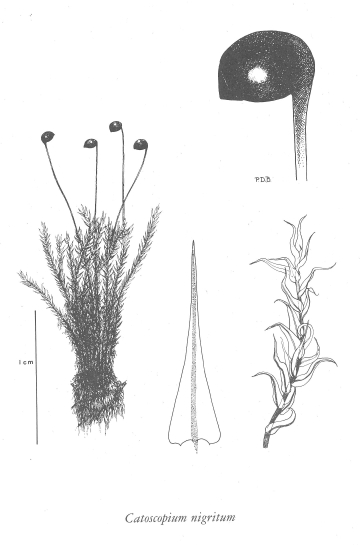E-Flora BC: Electronic Atlas of the Flora of British Columbia
Catoscopium nigritum (Hedw.) Brid.
golf club moss (black golf club moss) Catoscopiaceae Species Account Author: Wilf Schofield Extracted from Some Common Mosses of British Columbia Introduction to the Bryophytes of BC
|
|||||||||||||

